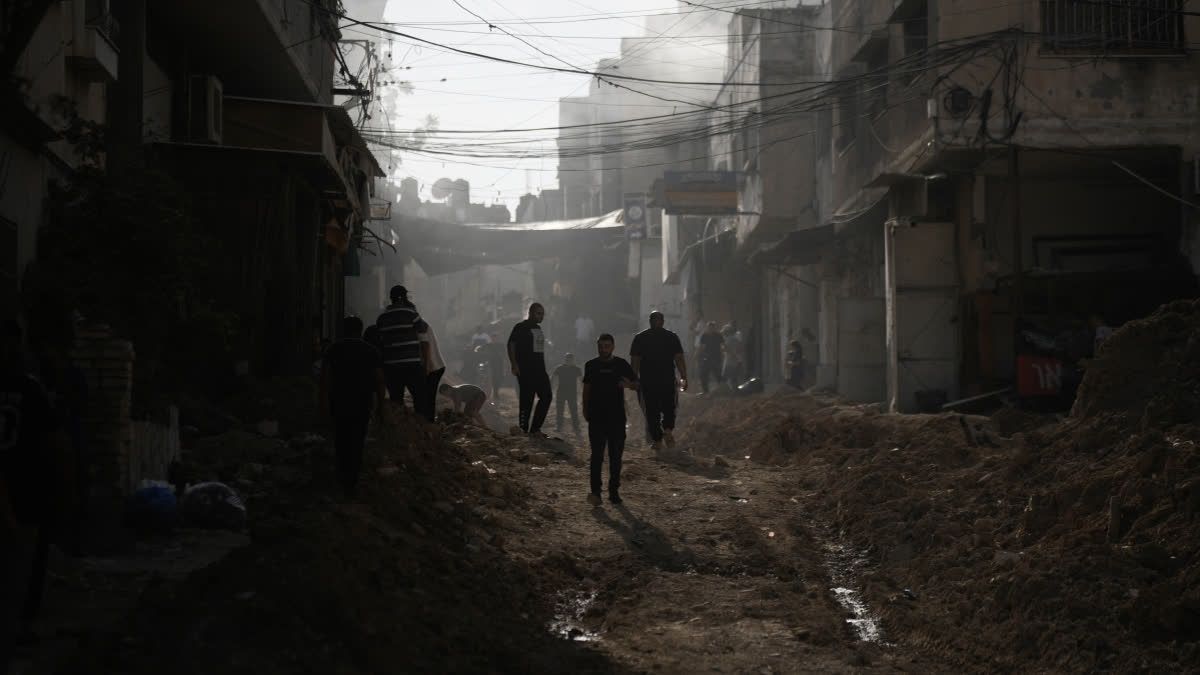Cairo: When Mostafa Qadoura was a week old, an Israeli strike on his home in the Gaza Strip last October launched him and his crib into the air, sent shrapnel into his right eye that damaged it beyond repair and killed one of his brothers. Mostafa was evacuated to Egypt weeks later when the hospital treating him came under siege by the Israeli army, and he has grown into a smiling and active 10-month-old with chubby cheeks. But he still faces huge challenges.
His mother and other brother were killed in a separate Israeli strike just days after he was evacuated. He will need a series of surgeries to adjust his artificial eye as his body grows. And it’s unclear whether he will return to Gaza before the war is over. “I don’t know what to tell him when he grows up,” said his grandmother and guardian, 40-year-old Amna Abd Rabou, who was allowed in April to travel to Egypt to care for him. She and Mostafa flew to Malaysia last week for a surgery that is scheduled for Monday.
In a war that has claimed the lives of thousands of Palestinian children and injured more, Mostafa’s story is both uniquely gut-wrenching and, in many ways, familiar to countless families in Gaza devastated and displaced by the fighting between Israel and Hamas. Mostafa is one of the roughly 3,500 Palestinians, mostly children, who have been evacuated from the Gaza Strip for medical treatment. Families there have submitted requests to have at least twice that number of injured children evacuated, according to the World Health Organization.
More than 12,000 children have been injured in the war, according to Palestinian health officials, and aid groups say many who have not been allowed to leave Gaza face health outcomes far less hopeful than Mostafa's. “We meet children whose lives are hanging by a thread because of the injuries of war or their inability to receive medical care for conditions like cancer,” said Tess Ingram, a spokesperson for UNICEF, the U.N.’s agency for children.
More medical evacuations would save lives and improve the futures of wounded children, Ingram said, “but above anything else, we need a cease-fire. It is the only way to stop the killing and maiming of children.”
The war began on Oct. 7, when Hamas fighters attacked southern Israel, killing some 1,200 people and taking roughly 250 hostages into Gaza. More than 40,000 Palestinians have been killed in the fighting since then, according to Gaza’s Health Ministry, which does not distinguish in its count between civilians and militants. At least a quarter were children, according to the ministry.
At the Administrative Capital Hospital in Cairo, Mostafa recently sat on his grandmother's lap, playing with a rattle and grinning at the nurse who escorted him on his journey from Gaza to Egypt. His grandmother also smiled, saying she would take care of him as a promise to her deceased daughter.
After the late October strike that killed his 4-year-old brother, Ayes, and badly wounded his then 22-year-old mother, Halimah, Mostafa was found meters away from the destroyed home in Jabaliya in northern Gaza — and still inside his crib, according to his grandmother.What followed was a familiar story of separation amid the chaos of the war, which has displaced close to 2 million Palestinians from their homes.
While Mostafa was receiving treatment for his injured eye and forehead at Shifa Hospital in Gaza City, his mother was having a leg amputated at a different hospital in northern Gaza, where she was also being treated for severe injuries to her neck, chest, and eyes.
